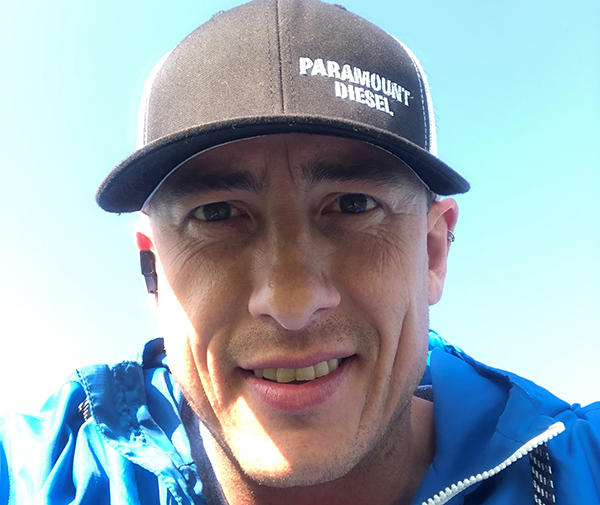Sept. 13, 2019
Social Work student shares his story to raise awareness about men's mental health and suicide

Dennis Shinski works to raise awareness around the issue of men’s mental health.
Courtesy Dennis Shinski
Sometimes being a resilient person can be a two-edged sword. Even when the trouble is too deep, you retain this notion that if you just buckle down, you can work your way out of it.
That’s the way it was for Dennis Shinski, “For years I just wanted to do it on my own,” he says. “I remember telling myself, I will figure this out. But it took me a long time to finally figure it out, and I didn't do it on my own. I did it with somebody else's help — a professional — I was at a level of dependency and addiction that escalated over the years and it took over my life.”
Shinski, who recently started his Bachelor of Social Work with the University of Calgary’s Learning Circle based in Grande Prairie, Alta., is working to raise awareness around the issue of men’s mental health and to encourage men to reach out when they need help. To that end, he shared his inspiring story as part of a new CBC documentary. Digging in the Dirt airs Saturday at 7 p.m. It focuses on high rates of suicide among men working in oil patch, industry and agriculture in northern Alberta
Statistically, men are more than three times more likely to die by suicide than women.
As someone who very nearly became a statistic, Shinski knows intimately the isolation, long hours and insecurity identified in the documentary as risk factors. At age 19 to 20, he appeared to have it all: a house, a nice truck and an oilfield job that paid well. Behind the scenes, however, his life was spiralling out of control with drugs and alcohol. After a good friend died he found himself in a very dark place.
“I felt bad that I couldn't help him,” reflects Shinksi, “because he reached out for help about three weeks before he died. I was in such a terrible place in my life that I couldn't help him because I couldn't help myself, you know? And I told him that.”
At this low point he finally visited a counsellor. That first session literally changed his life. He says he wept at the realization of the complete power his addiction had over his life.
“I just broke down in tears,” he says. “Going through the questions, I realized I didn't do anything without drugs or alcohol. Nothing. Whether it was social, sports, birthdays, weddings, whatever. Everything involved some type of substance unless I didn't have money or it wasn't there. It's almost like I couldn't stand life without it, right? Well that is addiction. That story in itself.”
The other way that counselling changed his life was that it reminded Shinski of his passion for helping others, and after some reflection he resolved to follow his passion, leave the oil patch and return to school with the goal of entering the Faculty of Social Work’s Learning Circle.
Since Social Work requires two years of post-secondary education, he upgraded his high school education, then enrolled at Grande Prairie Regional College and took two years of classes, focusing on sociology, psychology and anthropology.
“My experience there was just unbelievable and you know, I, yeah, I just, I'm so appreciative of the professors and the other students helping me. There were some mature students, but it was good to sit down with the younger people and do projects and get their perspective too, because they're our next generation. They can learn from me. I can learn from them. I like school. I like being there to learn.”
As he completes his Bachelor of Social Work, Shinski also works for a school in Grande Prairie as a student advocate, leveraging his lived experience and education into helping the students he works with. His energy and enthusiasm and joy practically crackle out of the phone as he talks about his new life. He says the school stands behind him 100 per cent and he’s excited to get the message out on tonight’s documentary.
“I hope that hearing my story and the other men in documentary … and it doesn't mean it's exactly your story. But if you feel like there's issues — and it can feel overwhelming and [you’re] stressed-out just start talking about it. Right? To a co-worker, supervisor, friend or even calling a mental health helpline — I think when we develop an awareness that something's going on, we can identify the problem and start working towards the solution.”
The movie premieres Saturday, Sept. 14 at 7 p.m. on CBC Television. Watch it online at CBC.ca.




